Fear, Feast, Fire
It looks like at any moment the earth will just shut like a book, and we’re on the margins.
Jonny has a lovely habit of saying beautiful things. He’s right too. Pictures don’t do it justice, but looking out across the Debed Canyon is surreal; a tapestry of farmland plays out on sprawling plains which look marble smooth until suddenly it all plunges into the great yawning chasm of the canyon, the lowest point in all of Armenia.
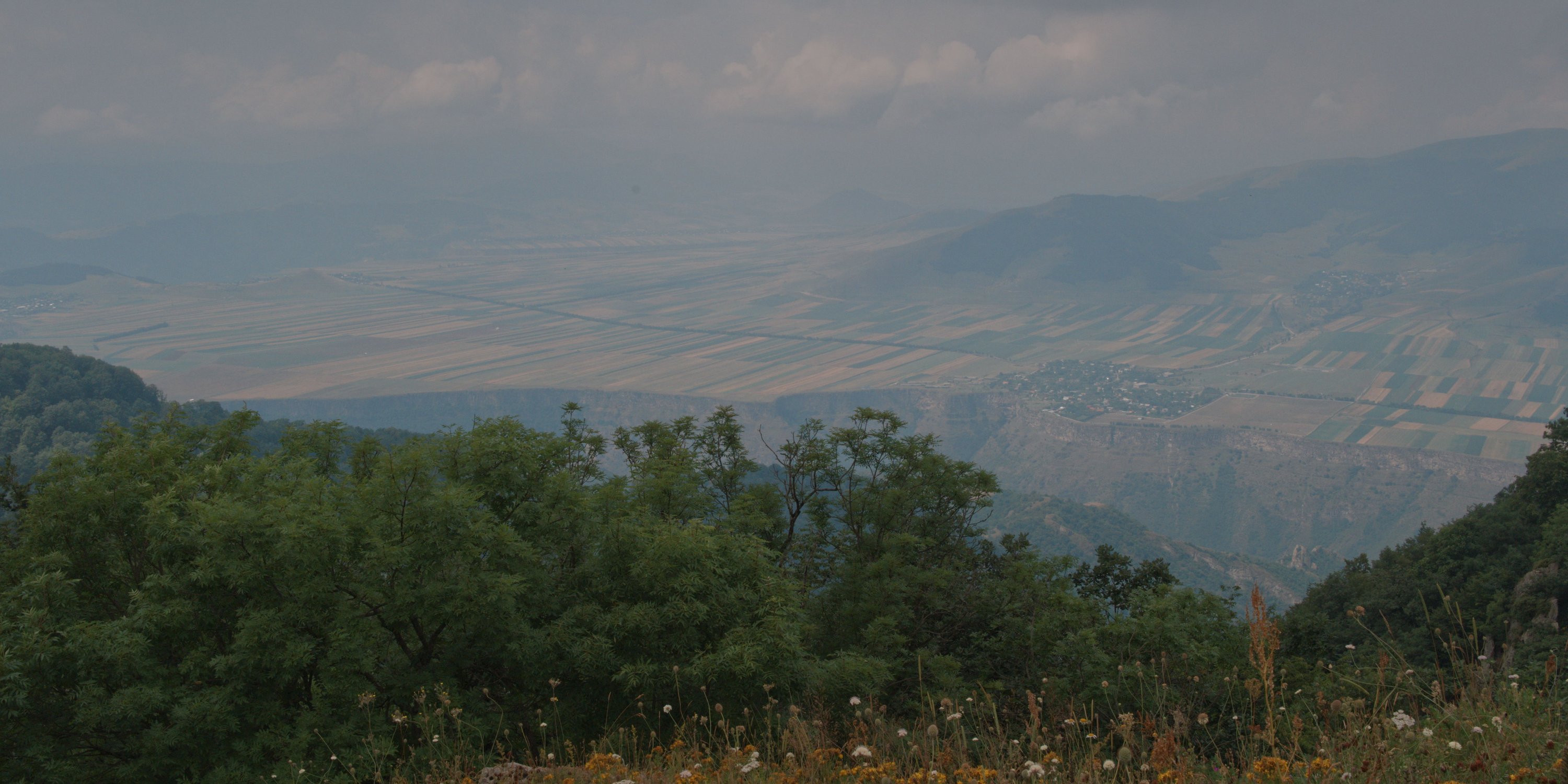
This is part 2 of The Booky Chronicles, Jonny and I’s nine day walk through the mountains of Armenia in the midst of my walk to the Himalaya.
An hour after those first bear prints, and having seen several more, I’m glad when we meet Alvard (Ալվարդ) deep in the undergrowth picking wild plants for chai. Quietly I hope it begins to settle Jonny to the idea that man has less to fear from bears than bears do from man.
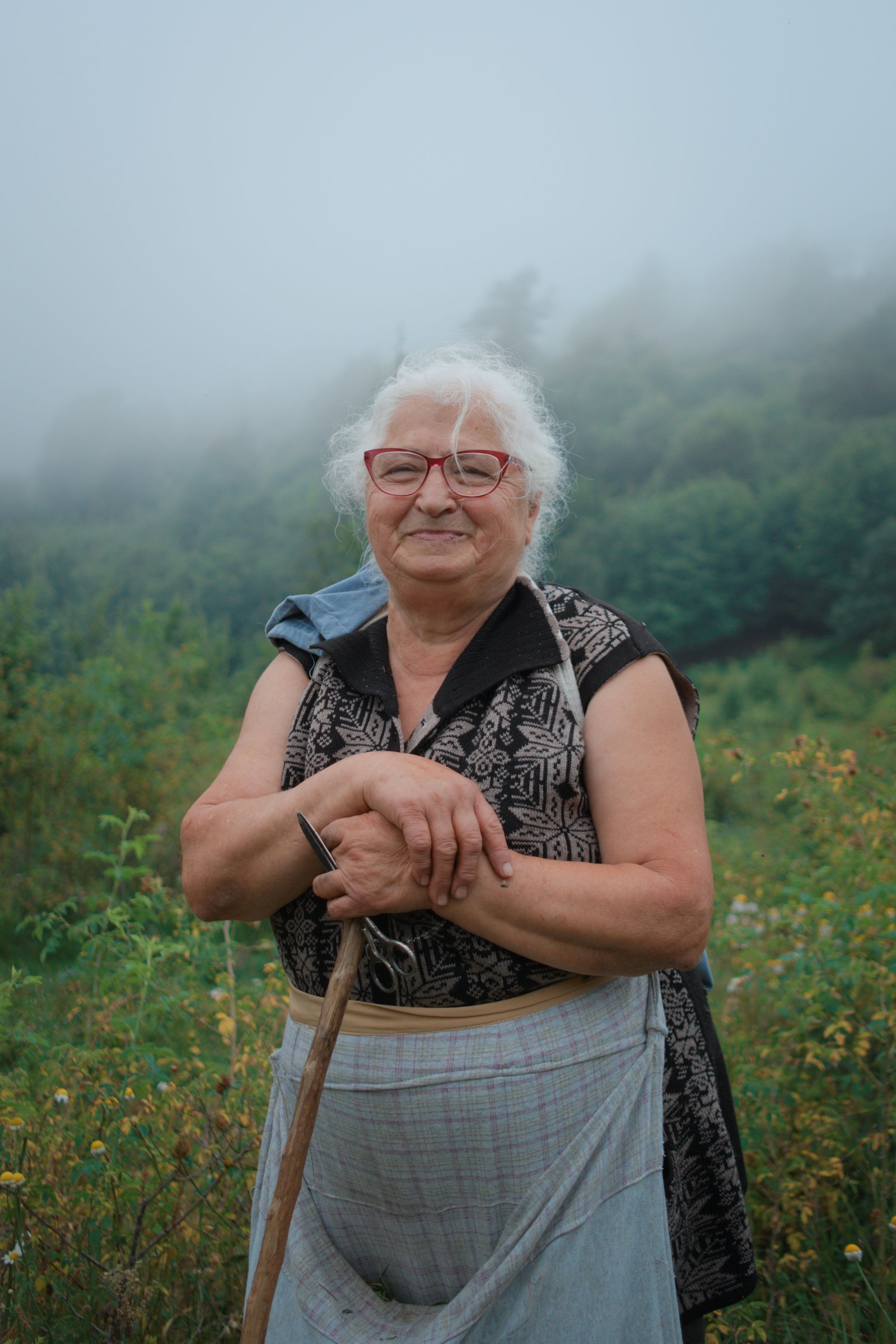
Having crossed the border into Armenia only two days before Jonny’s arrival, I haven’t picked up much Armenian yet, so we rely on my few words of Russian (русский) picked up in Georgia (ჯორჯია), like пешком/peshkom (on foot), and the names of villages (Alaverdi, Dilijan) to describe the journey ahead. Alvard is of that joyful sort where our ignorance of Armenian is of no concern and she talks to us at length, while I pick out the few words I know and glean from her gestures that she and her many children live in Alaverdi in the winter, but through much of the summer she stays up in the mountains in a little shack, grazing her cows and harvesting chai into the large marsupial pouch of her apron.
Armenian (հայերեն), like Georgian (ქართული) before it, will challenge me with its beautifully strange alphabet, but everyone here is patient with the wanderer and very appreciative of the effort.
We leave Alverd to her work and plunge head first into several hours of sopping wet bush bashing. It’s only later, when I learn that Jonny hasn’t spent as much time in the outdoors as I assumed, that I fully appreciate how little he complains as we cut and wade through miles and miles of dense foliage that reaches above our heads, and conceals treacherous hollows in the ground beneath our feet. By 9am we are soaked from heel to heart and stay that way for much of the day.
Wherever the undergrowth ebbs Jonny intently searches the ground for bear sign, sometimes we spend several minutes inspecting a marginal animal track, and it is apparent that Jonny errs on the side of bear, and I on the side of probably not a bear, but still we see plenty of sure tracks and scratched trees for there to be no doubt of brown bears having passed our way within the last day or two. Wolves are much harder to be certain about as there are so many large dog breeds in the area, but by probabilities we may have sighted a few gray wolf prints too. Everywhere wildlife is accompanied by wilddeath, and carcasses of mice, stoats, hedgehogs, frogs, and snakes are the visible leavings of the buzzards and eagles that swoop and soar overhead, after which a zoo of beetles, ants, maggots, and other bugs descend on the remains.
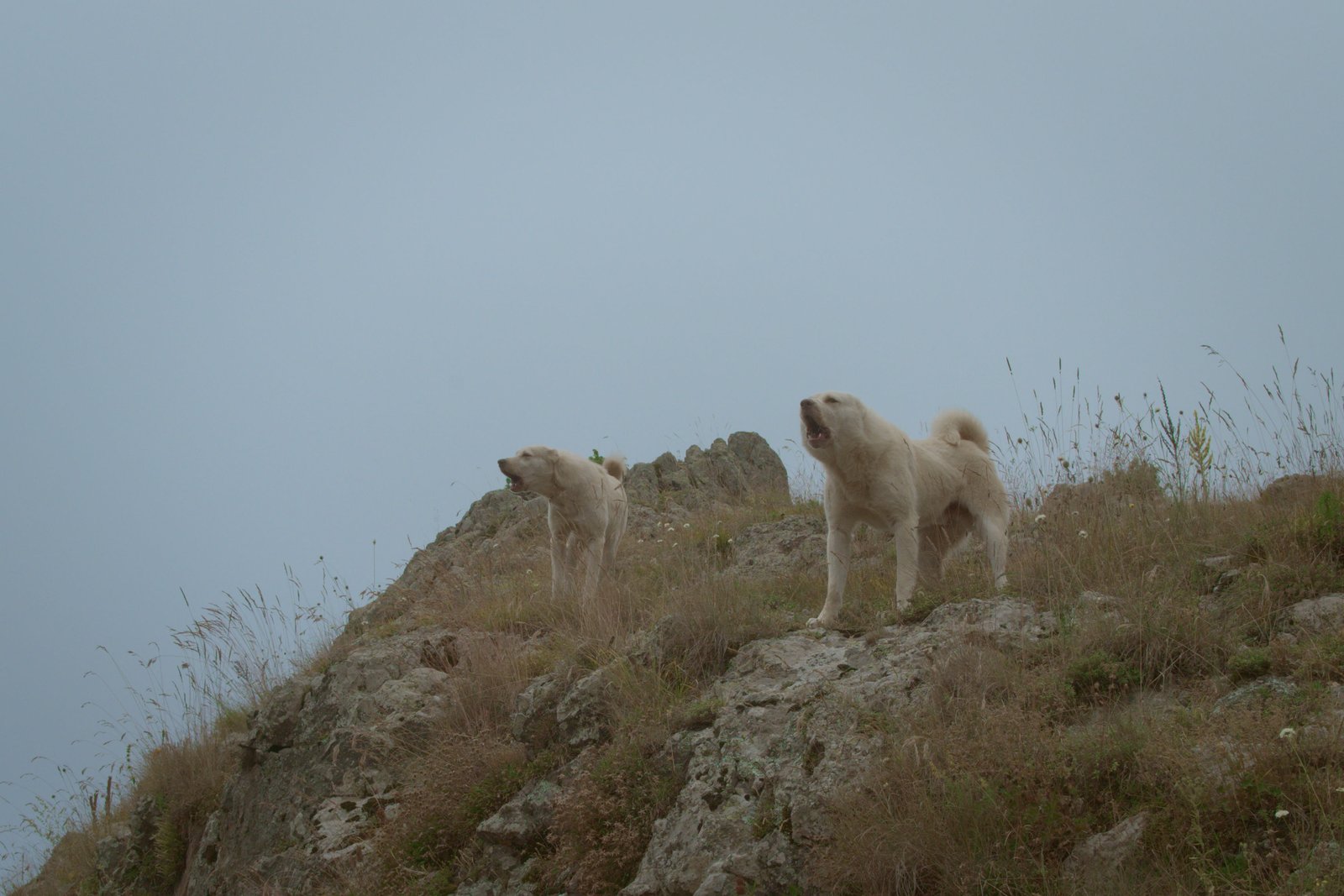
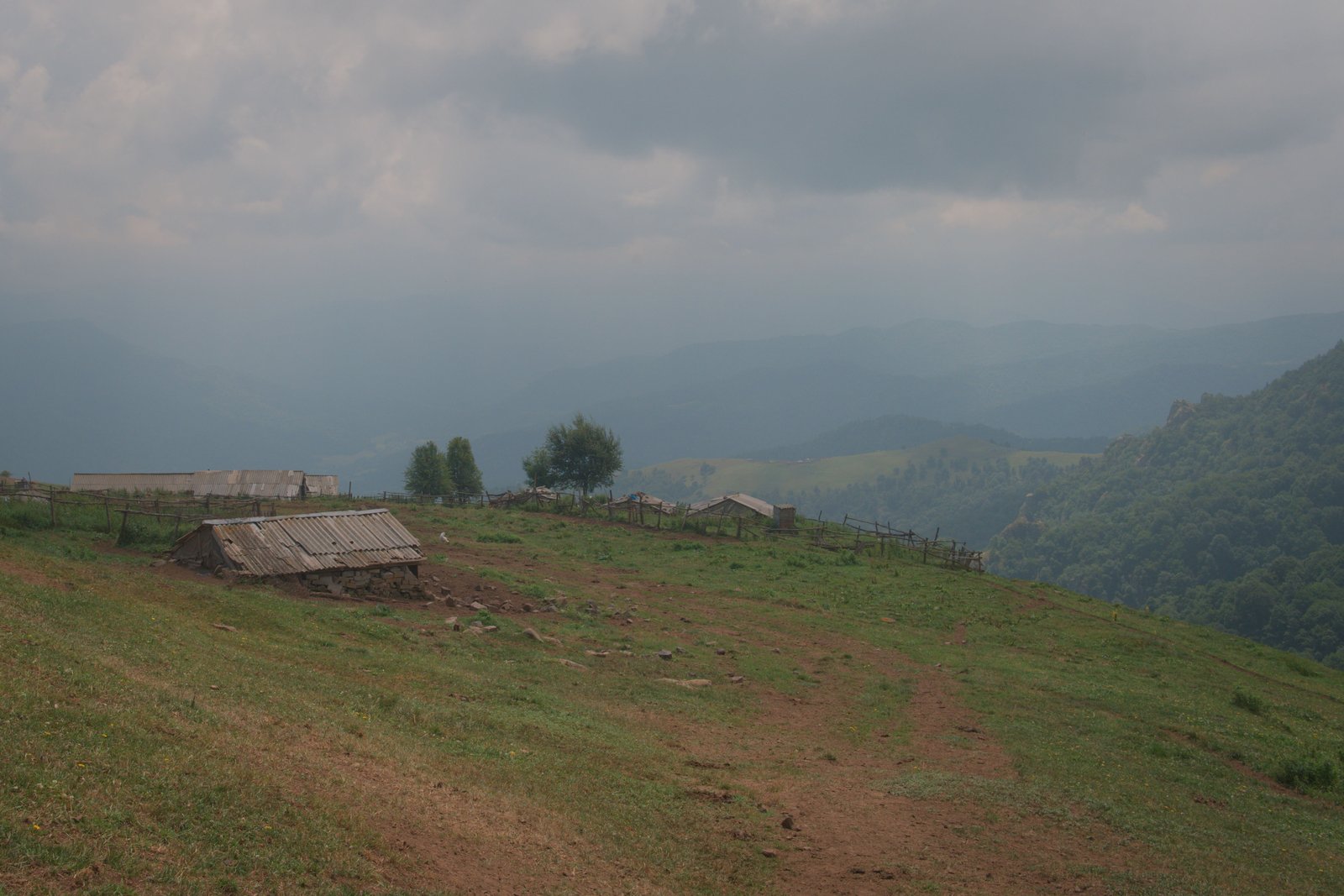
Beyond the dense foliage are the open tops and high, steep grazing where we will meet more of the dogs that guard the herds and camps. Often the most violent dogs are kept on a chain, but there are exceptions, and Jonny gets his first experience of being charged by a gnashing, all-muscle beast.
The handsome young harbinger
Jonny’s tent is a lightweight affair I picked up second-hand for him in Tbilisi and it takes a fair while to get the pitch right. All the while he has the feeling that we’re being watched. Through the day his fears about bears have receded, but the sun has set and beyond the inky wall of the forest beside us he imagines “fantastical creatures with ferocious fangs”. As I make dinner this hangs over us, for all that he tries to manage it, but before we can confront it we are interrupted by the arrival of an eight year old boy on a horse.
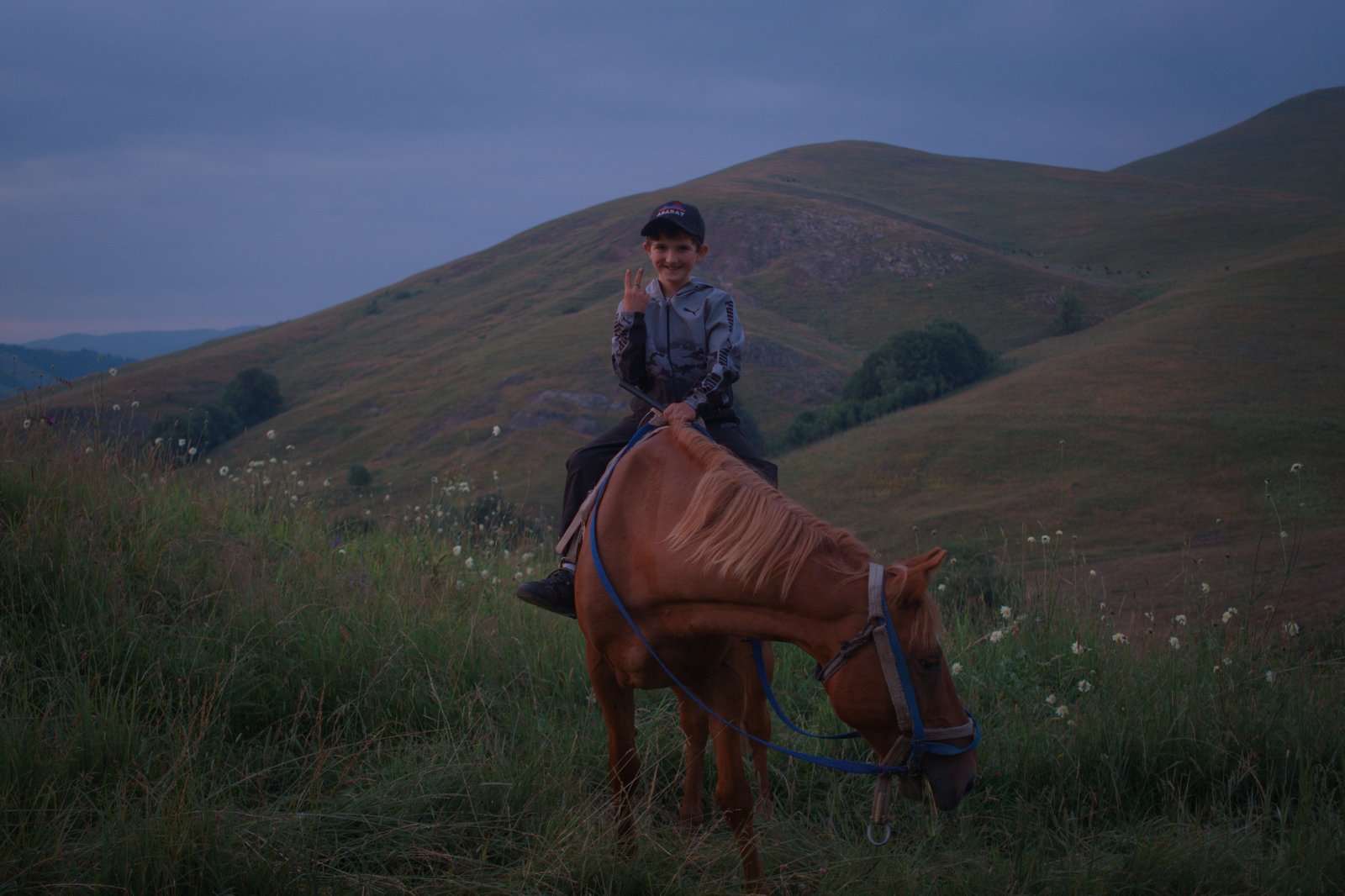
His name is Samvel and he has come to warn us about those same bears (արջեր) and wolves (գայլեր) that are already alive in Jonny’s mind. I recognise this warning as the same warning I have heard a hundred times over the last eight thousand kilometres, but to Jonny it might as well have been a visit from the grim reaper himself. Thankfully, this reaper has invited us to the safety of his home, where neither real nor imagined bears roam. As the last of the evening light slips from the sky, Samvel having left us to ruminate, Jonny finds the courage to say he can’t sleep where we are.
Packing up and heading for the little clutch of buildings and tents across the valley, Jonny’s fears about bears are replaced by worries of being a nuisance on this journey, which I do my best to disarm, but which are not settled fully until we’ve had the total experience of the clan to which our young harbinger belongs. At the first bark of the dogs Samvel appears again, this time with one of his brothers, and we are led to a long room where dinner has just begun.
For Jonny the experience of being invited to eat with a large group of people with whom he shares no spoken language is more novel than for me. But by his sensitivity he quickly adjusts to the game of charades by which we come to understand the rough shape of the family tree, the seasonal activities of the clan, and gradually convey something of ourselves in return.
Arpine (Samvel’s older sister) speaks English but her attentions are divided between the wanderers at the table and helping Lilit, her mother, in the kitchen. By some sixth sense she always reappears when we have reached an impasse in the breakneck pantomime and so adopts the role of final arbiter of all (mis)understanding between Anglian and Armenian. Later we learn that it was she who sent Samvel to warn us.
The table grows heavy with cheeses, fruits, vegetables, bread, rice, and meat and more of all sorts — all except the rice having been grown, harvested, made, fermented, or slaughtered within a few hundred metres of where we sit. In the middle of the table stands a large pot of stew and while Arpine translates our intended journey to her family, Eleftheria, her grandmother, ladles generous portions into chipped bowls in front of Jonny and I, all the while conducting everyone else so that from left and right and across the table so much food is deposited in front of us that soon I have been handed a second plate.
Eight year old Samvel appoints himself our waiter and fills our glasses with water or cola at his whim, while every few minutes his uncle’s hand snakes through the labyrinth of food, plates, and glasses to retrieve one of mine and refill it with vodka before calling another toast (there were many). Jonny doesn’t drink but later notes that the uncle seemed set on my drinking a double share of their homebrew to balance that alien notion. For my part I’m just glad to see the man who an hour before had startled when he mistook a bush for an approaching wolf happily nodding along to rapid-fire Armenian as if he understood every word.
Arpine is learning to play guitar and Jonny has clocked her instrument sitting in the corner of the room beneath a framed icon of Mary cradling Jesus. As dinner winds down Armen (Arpine and Samvel’s father) announces that the fire is ready, and Jonny sees an opportunity to share that second language of his that needs no translation.
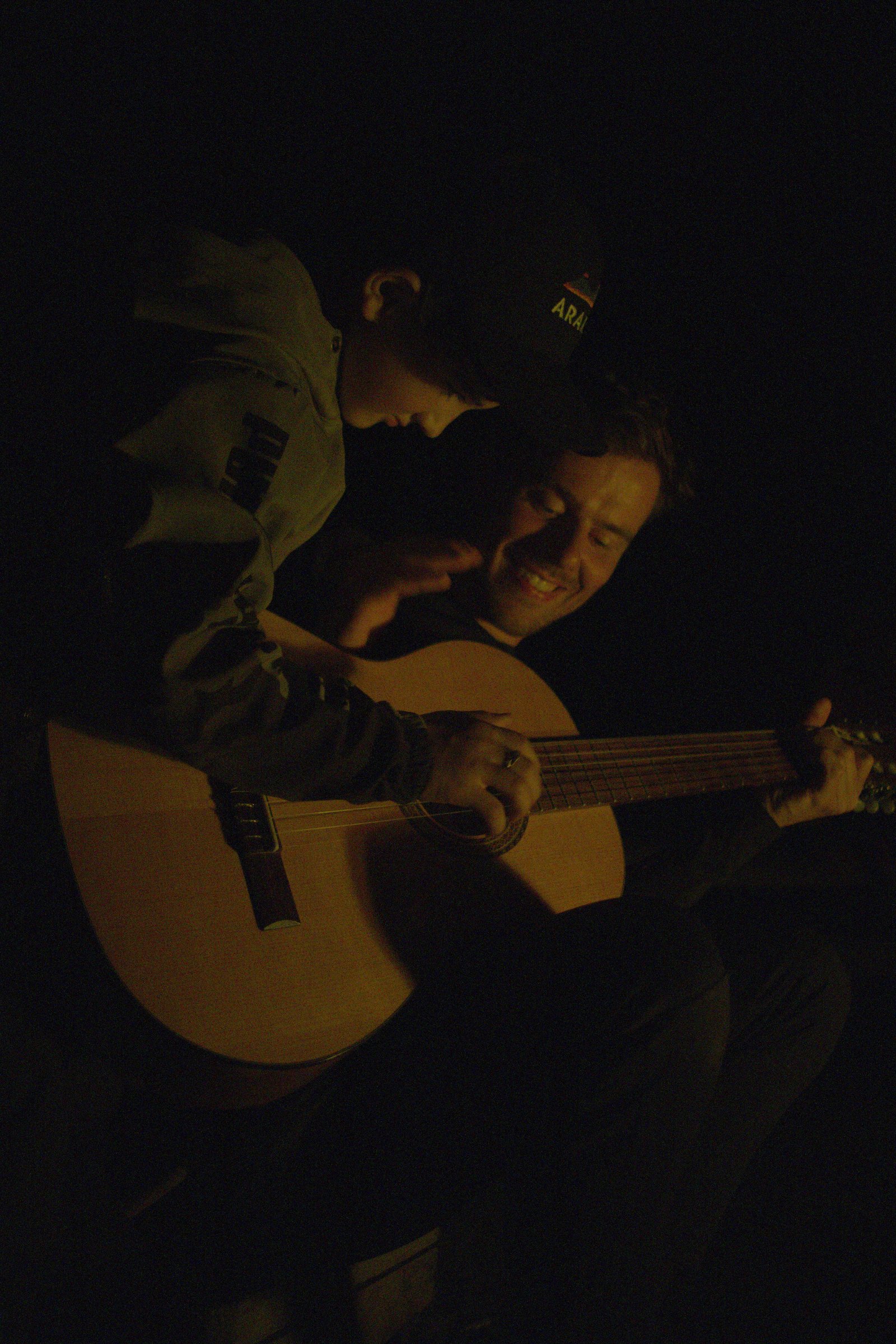
For the next hour and a half, sitting around a fire of windfallen trees and gasoline, the valley is treated to the most eclectic and international one man concert it is ever likely to see. Arpine and her sister Zoya, who both sing well but are shy about it, have Jonny playing melodies from Lana Del Ray, Blackpink, Eminem, Coldplay, and a dozen others I forget, while their aunts pull him from West to East by humming Armenian songs which he then picks up by that magic of the musicians ear. Without a doubt, the highlight are the two songs that Jonny improvises about the events of the day, his arc from fear to salvation.
Except for the photo I take of Jonny and Samvel playing together and another of Arpine and Samvel, for the rest of the night my camera is not my own, Samvel whisks it away and I hardly see it again until the morning.
Later, as I turn the work of his eye into a collage, I’m reminded how special it can be to receive your own experience back through another’s eyes, especially the eyes of a child still roaming through that wide-open realm of becoming, where all of life is immediate, visceral, and sincere. Children are not sophisticated. That might sound like a slight but it isn’t, I say it with envy. Sophistication is division, it is the tool by which we divide and diminish others and our selves. Samvel can do anything, because he doesn’t yet know any different (he who says he can and he who says he can’t are both usually right). He can ride a horse; relate to two strangers without words and invite them to his home without anxiety; act as waiter, clown, fire master, photographer, and one-half of a guitar player — he can try anything, and by trying he is becoming.
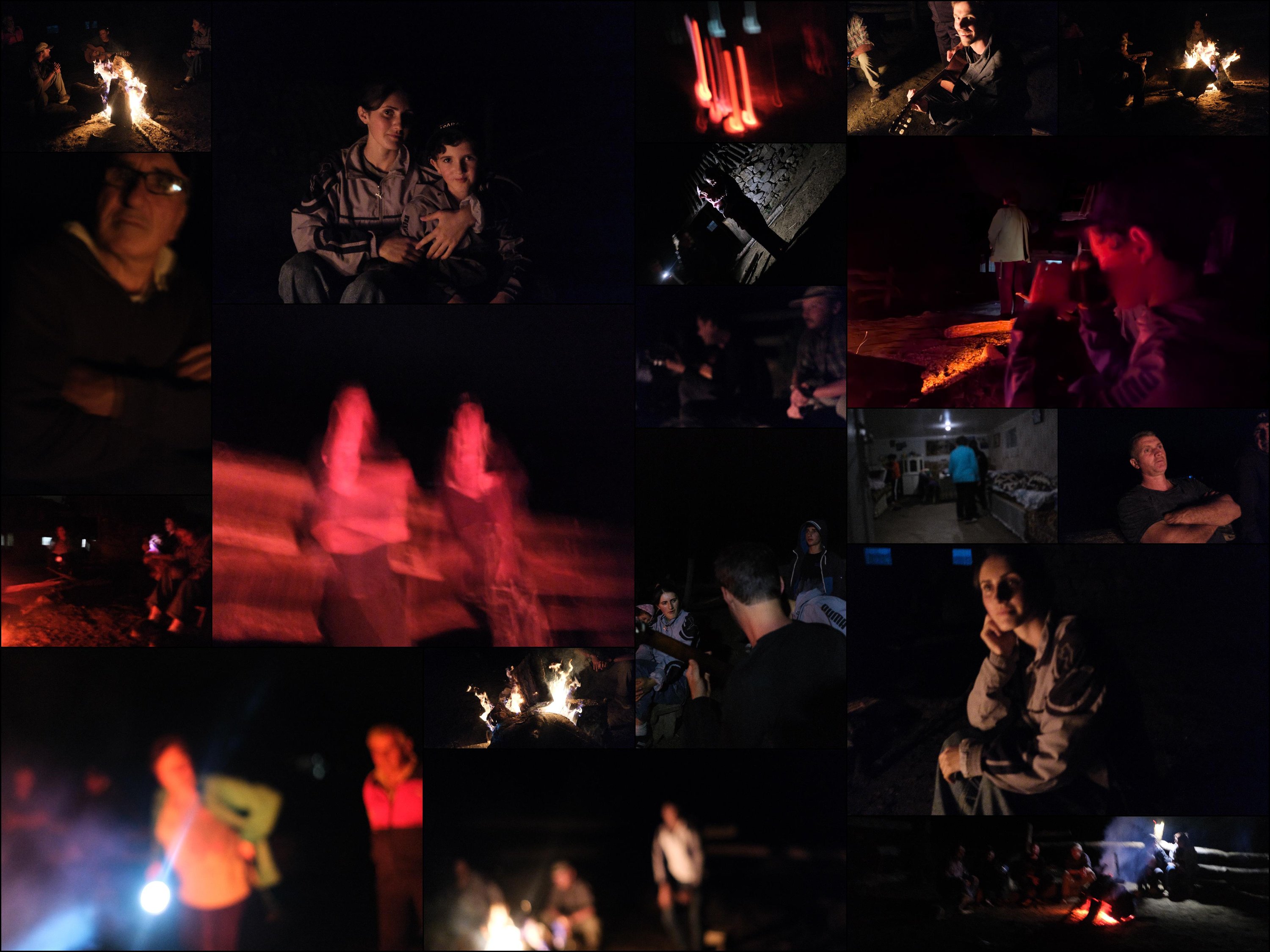
Somewhere along the way most of us find our way to the idea of sophistication, and once we do life is never the same. To be sophisticated is to spend life looking at the world through a mirror — always reflecting on how we are perceived, how we compare, how we appear in the eyes of others — while walking on the ceiling, all so as to be above. Everything is backwards and upside down and nothing makes sense, and that’s the point: the madness of it is what makes it so appealing, because it excludes. Sophistication places rules above feeling, above passion, above truth. To be sophisticated is to throw out the positivist idea that it is what we do that is most important, and adopt instead the anxious belief that we are what we don’t do. Sophisticated people don’t talk like that (with honesty), don’t express those things (real feelings), don’t go to places like that (where life has texture), don’t associate with those people (the unsophisticated). In pursuit of sophistication we learn to second-guess instinct, to suppress natural feeling, to evaluate experience always through a framework of comparison and exclusion, and we arrive at a default of not possible where once everything was possible.
As I try to save myself from the seduction of sophistication, to see it for its mere sophistry, nothing and no one is more effective than the child at laying bare how I have made myself and the world smaller as I have grown larger.
I don’t really separate them, they’re all the same thing. I don’t think children separate different artistic… they don’t separate themselves either. They don’t say as adults do “well there are artists and then there are other people”. Kids, if they want to draw they draw, they want to sing they sing, they want to pretend they’re The Lone Ranger or Aragorn or an elf or a monster they just do it, they don’t think about it. It’s only adults that make that distinction and I think that everybody, even when they grow up, is an artist, it’s just a way of living. Being an artist, […] it just has to do with paying attention, remembering, filtering what you see and answering back, participating in life.
It turns out we have arrived on the eve of The Feast of Vardavar1 and we’re invited to join the family for the customary all day water fight the following day, but we’ll decide whether or not to stay for that in the morning.
As the fire burns down, two bunks are readied in a shack just beyond the pigs and before the goats. We’re to share three beds with two of Samvel’s uncles (the one who plied me with vodka all night whose name I forget and another, Rafayel). I offer to sleep on the ground but they steadfastly refuse — somehow they, two full grown men, will share one single bed — I’m relieved when they at least let me insist on their taking the mattress. A commotion erupts — a bird has flown inside — and Jonny will spend the rest of the trip telling people how I caught a bird with my bare hands.
As I snuggle down on a pile of old coats on a three plank bunk, over a mud floor, listening to the goats just down the hill, the pigs just above, and Samvel causing trouble for his aunts a little further off, I’m grinning from ear to ear, happy that Jonny, by the end of day 2, has already been able to experience the heights of hospitality that mark all the richest memories of this walk.
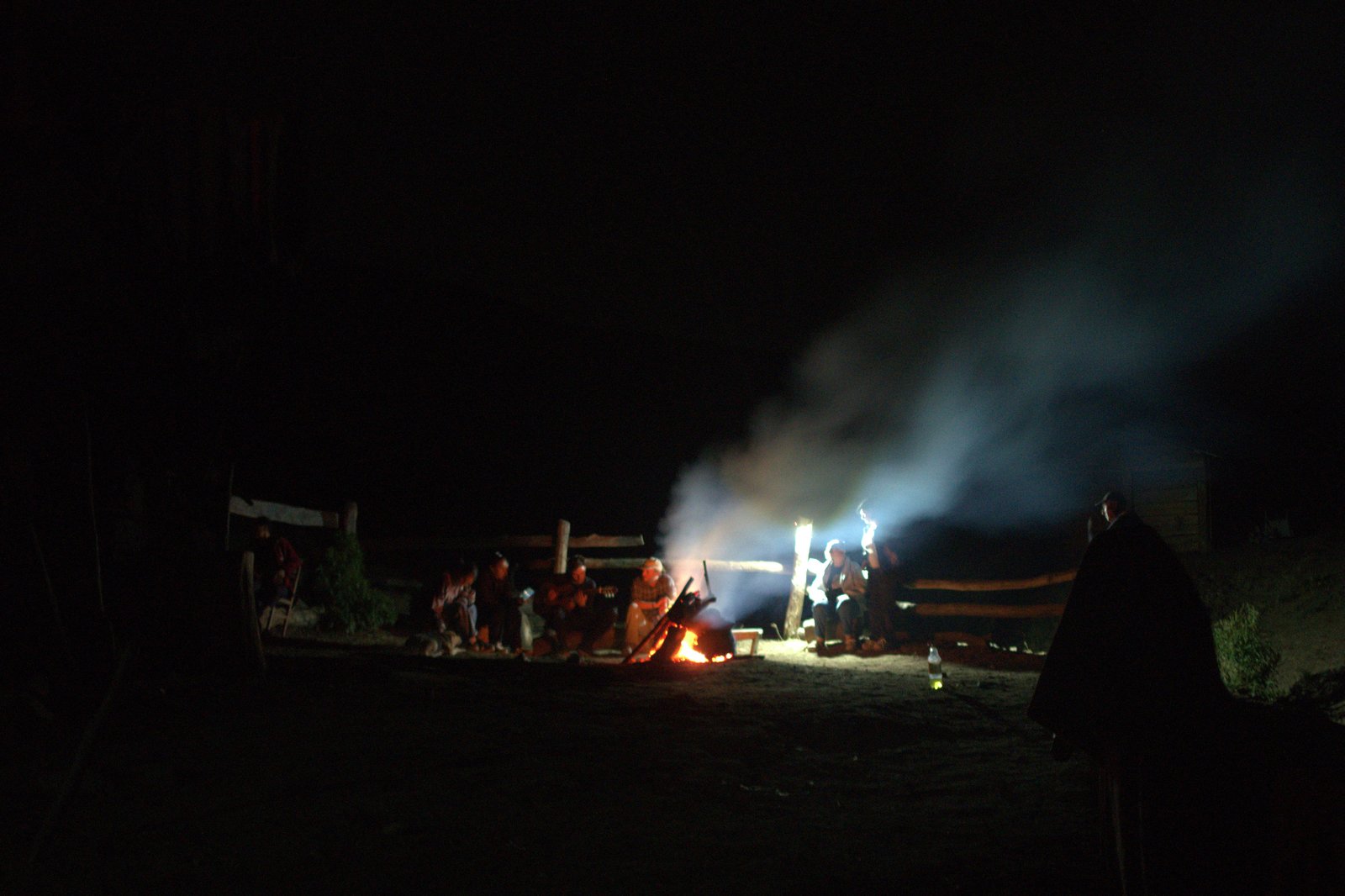
-
Vardavar is an Armenian ritual dating back to pagan times, but which survived the Christianization of Armenia in 301CE.↩︎